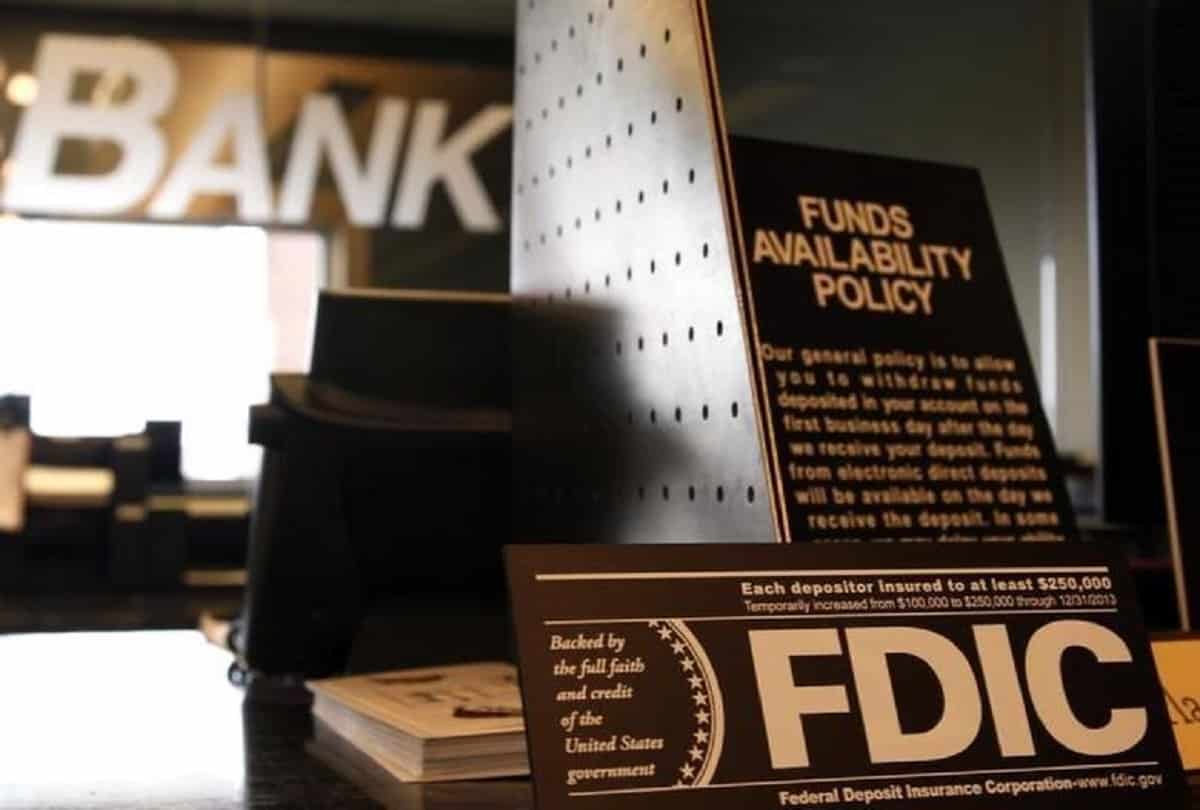Regulation
Eight Newspapers File Lawsuit Against OpenAI, Microsoft

Eight major U.S. newspapers have filed a lawsuit against OpenAI and Microsoft, claiming they have violated copyright laws.
The lawsuit was filed in the Southern District of New York and contends that the companies took copyrighted material from these newspapers without permission to train their artificial intelligence (AI) products, such as ChatGPT and Microsoft’s Copilot.
Details of the Lawsuit
The plaintiffs in the case involve The New York Daily News, The Chicago Tribune, The Orlando Sentinel, The Sun Sentinel of Florida, The San Jose Mercury News, The Denver Post, The Orange County Register, and The St. Paul Pioneer Press.
These newspapers, under the management of the the MediaNews Group and Tribune Publishing subsidiaries of Alden Global Capital, allege that millions of their copyrighted articles were used to train the AI models developed by OpenAI and Microsoft. The legal action does not state any specific monetary damages; rather, it focuses on the necessity of compensatory measures and a jury trial.
Allegations Against AI Practices
The complaint underscores a growing concern among news publishers that their content is being utilized without proper compensation or acknowledgment, potentially undermining traditional news platforms.
According to the lawsuit, the AI models not only use copyrighted text but also sometimes generate outputs that misattribute or distort information, which could harm the publishers’ credibility and revenue streams.
According to the publishers, AI-generated responses usually reproduce the content word for word from the journals stored behind the paywalls without even linking back to the original sites. This habit could lead to the reduction of the demand for the direct subscriptions, affecting the financial state of those publications.
Response from OpenAI and Microsoft
As for the latest lawsuit, however, OpenAI and Microsoft have not yet responded, although in some previous cases, such as the New York Times, they have defended their actions. The companies claim that teaching AI models with internet-derived data is legal, finding comparisons with how other types of media utilize copyrighted content using fair use provisions.
They argue that the AI tools provide a revolutionary application and ought to be perceived as a technological progress rather than the replacement of human generated content.
The lawsuit is in the context of a wider inspection of ethical use of copyrighted materials in training AI models. The issue led to a multitude of responses in the media landscape as some publishers decided to negotiate with tech companies directly. For example, The Financial Times recently reached an agreement with OpenAI, setting a precedent for potential licensing arrangements.
Read Also: VALR Bags Regulatory Nod In Poland In Major Global Expansion Push
The presented content may include the personal opinion of the author and is subject to market condition. Do your market research before investing in cryptocurrencies. The author or the publication does not hold any responsibility for your personal financial loss.
Regulation
US SEC Drops Charges Against Hawk Tuah Girl Hailey Welch

Hawk Tuah girl Hailey Welch, known for her association with the controversial $HAWK token, has been cleared of any wrongdoing after a lengthy investigation by the U.S. Securities and Exchange Commission (SEC). The SEC has decided not to press charges against Welch in connection with the rapid rise and subsequent collapse of the meme-based cryptocurrency.
US SEC Investigation Into Hawk Tuah Girl Concludes Without Charges
The SEC had launched an investigation into the $HAWK token after its dramatic price drop. The token, which was linked to Welch’s viral persona, initially saw a market cap surge to $490 million before crashing by over 90%. Investors who were impacted by the crash filed a lawsuit against those behind the project, alleging that the coin had been promoted and sold without proper registration.
Hawk Tuah girl Hailey Welch, who cooperated fully with the investigation, expressed relief after the SEC’s decision. “For the past few months, I’ve been cooperating with all the authorities and attorneys, and finally, that work is complete,” Welch told TMZ.
Her attorney, James Sallah, confirmed that the SEC had closed the case without any findings against her, adding that there would be no monetary sanctions or restrictions on Welch’s future involvement in cryptocurrency or securities.
This Is A Developing News, Please Check Back For More
Disclaimer: The presented content may include the personal opinion of the author and is subject to market condition. Do your market research before investing in cryptocurrencies. The author or the publication does not hold any responsibility for your personal financial loss.
Regulation
Sonic Labs To Abandon Plans For Algorithmic USD Stablecoin, Here’s Why

Barely a week after hinting at launching an algorithmic USD stablecoin, Sonic Labs is shuttering its plans. Sonic Labs co-founder Andre Cronje revealed that incoming stablecoin regulation in the US contributes to the change of stance.
Sonic Labs Makes U-Turn Over Algorithmic USD Stablecoin
In mid-March, Sonic Labs disclosed plans for a yield-generating algorithmic stablecoin for its blockchain. However, new developments in the US regulatory landscape are forcing the company to ditch its algorithmic stablecoin ambitions.
Sonic Labs co-founder Andre Cronje confirmed the change in direction via an X post following the release of the full draft of the STABLE Act by Congress for clearer oversight. According to the text, lawmakers are pushing for a two-year moratorium on algorithmic stablecoin, souring Sonic Labs plans.
Unlike mainstream stablecoins backed by fiat or other commodities, algorithmic stablecoins rely on smart contracts to maintain their peg. The 2022 implosion of Terra’s ecosystem following the de-pegging of its TerraUSD (UST) algorithmic stablecoin stunned regulators.
“We will no longer be releasing a USD-based algorithmic stablecoin,” said Cronje.
In a light-hearted note, community members teased potential strategies for Sonic Labs to sidestep incoming stablecoin regulation. Apart from the loophole of launching the algorithmic stablecoin before the regulation goes live, Cronje teased an algorithmic dirham that will be denominated in USD.
Industry Players Are Bracing For New Stablecoin Regulations
Stablecoin issuers are steeling themselves for incoming stablecoin regulations in the US. While the GENIUS Act and STABLE Act continue to inch forward, there are common denominators in both bills.
For starters, there is the requirement for equivalent reserves at a 1:1 ratio with both bills steering clear of algorithmic stablecoins. The White House is favoring the GENIUS Act over the STABLE Act as lobbyists rally to stifle the possibility of a Conference Committee.
Authorities are targeting stablecoin regulation to reach Trump in two months as issuers jostle for position. Tether, Circle, and Ripple are staking their claims to lead the US government’s ambitions to rely on stablecoins to maintain the dollar’s dominance.
Disclaimer: The presented content may include the personal opinion of the author and is subject to market condition. Do your market research before investing in cryptocurrencies. The author or the publication does not hold any responsibility for your personal financial loss.
Regulation
FDIC Revises Crypto Guidelines Allowing Banks To Enter Digital Assets

The Federal Deposit Insurance Corporation (FDIC) has updated its guidelines, enabling banks to engage in cryptocurrency-related activities without seeking prior approval. This new policy shift signals a change in the FDIC’s approach to the growing role of digital assets in the banking sector.
New FDIC Guidelines on Crypto-Related Activities
The FDIC has issued a new Financial Institution Letter (FIL-7-2025), which provides updated guidance for banks looking to engage in cryptocurrency activities. The new guidance rescinds the previous policy set out in FIL-16-2022, which required banks to notify the FDIC before engaging in such activities.
Under the new rules, banks can now participate in permissible crypto-related activities without waiting for FDIC approval, as long as they manage the risks appropriately.
This change is seen as a shift in the FDIC’s stance, following the agency’s earlier stance that required prior approval for crypto engagements. FDIC Acting Chairman Travis Hill expressed that this new approach aims to establish a more consistent framework for banks to explore and adopt emerging technologies like crypto-assets and blockchain.
“With today’s action, the FDIC is turning the page on the flawed approach of the past three years,” said Hill in a statement.
This Is A Developing News, Please Check Back For More
Disclaimer: The presented content may include the personal opinion of the author and is subject to market condition. Do your market research before investing in cryptocurrencies. The author or the publication does not hold any responsibility for your personal financial loss.
-

 Market24 hours ago
Market24 hours agoEthereum Price Struggles—Is Another Breakdown on The Horizon?
-

 Market20 hours ago
Market20 hours agoXRP Price Slides Slowly—Is a Bigger Drop Coming?
-

 Altcoin24 hours ago
Altcoin24 hours agoBinance Adds Support For MUBARAK, CZ’s Dog, & These Crypto, Here’s All
-

 Market23 hours ago
Market23 hours ago$14 Billion in Bitcoin and Ethereum Options Set to Expire Today
-

 Market22 hours ago
Market22 hours agoDogecoin (DOGE) Faces Market Correction—Will Buyers Step Back In?
-

 Bitcoin21 hours ago
Bitcoin21 hours agoStrategic Bitcoin Reserve Proposed by Brazil’s VP Advisor
-

 Market21 hours ago
Market21 hours agoTerra’s Crypto Claims Portal Opens Soon: Key Dates and Info
-

 Altcoin14 hours ago
Altcoin14 hours agoDogecoin Price Set To Reach $1 As Once In A Year Buy Opportunity Returns





















✓ Share: